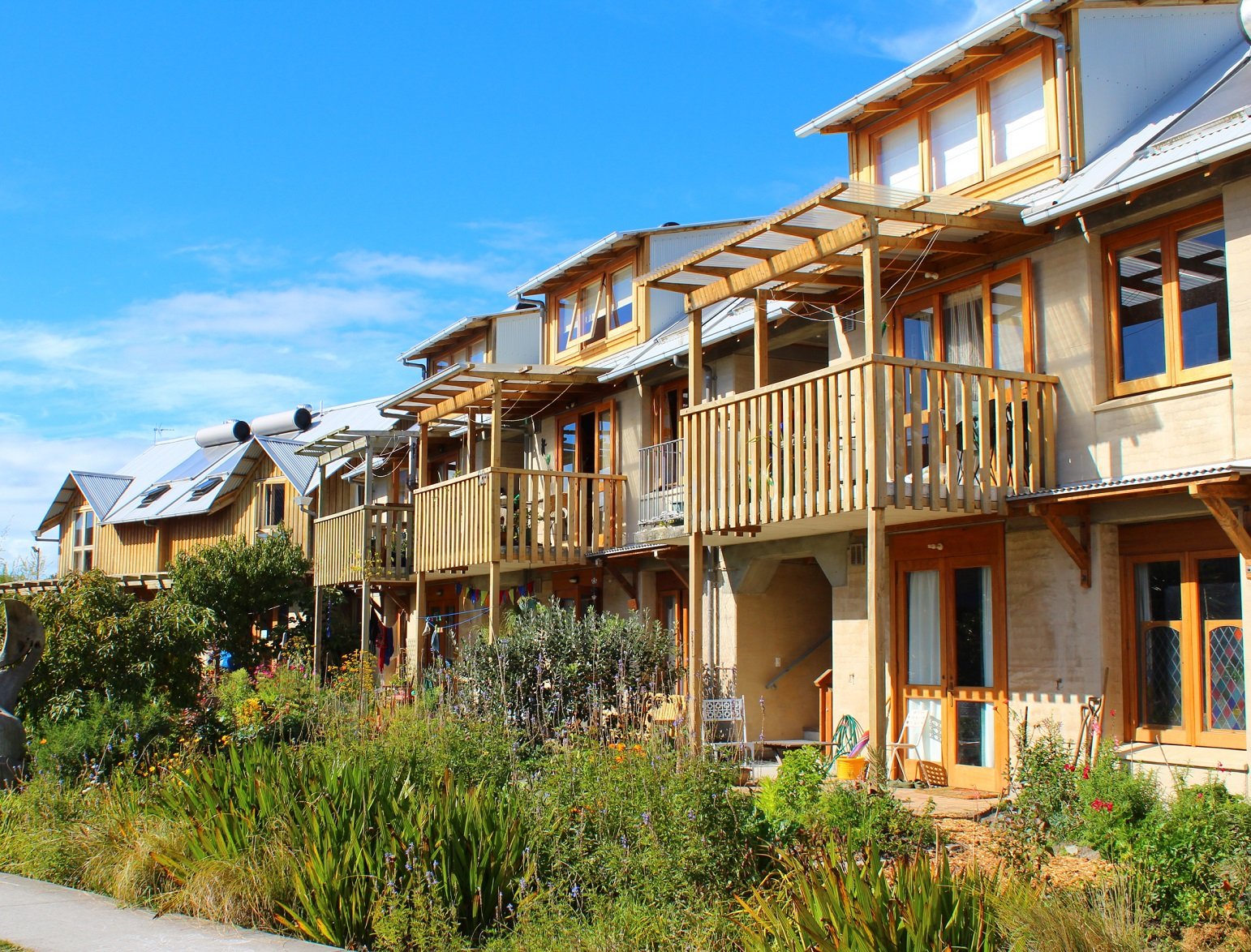AOTEAROA COLLECTIVE HOUSING CONFERENCE
BROUGHT TO YOU BY
THE HOUSING INNOVATION SOCIETY
16-17 of April 2025
Ara Institute of Canterbury, School of Engineering and Architectural Studies, Ōtautahi Christchurch
CALL FOR PAPERS
“The Future of Housing”
All accepted Papers will be published in the conference proceedings and will be considered for a Special Issue of the Urbanization, Sustainability and Society (USS) Journal, published by Emerald Publishing

Conference sessions & themes - including but not limited to:
Interdisciplinary Approaches & Community Development to Collective Housing
Social and Environmental Justice in Collective Housing: Addressing Inequality through Design.
The Future of Collective Housing: Trends, Challenges, and Opportunities.
Collaborative Design Processes: Engaging Stakeholders in Collective Housing Projects.
Empowering Communities through Collective Housing: Tools and Techniques.
Social Cohesion and Community Building: The Role of Collective Housing.
Health and Well-being in Collective Living: Designing for Mental and Physical Health.
Urban Commoning and Shared Spaces
The Role of Urban Commons in Collective Housing: Enhancing Community Engagement and Resource Sharing.
Designing for Commoning: Architectural Strategies for Shared Spaces in Urban Settings.
Case Studies of Successful Urban Commoning: Innovative Projects and Their Impact on Community Well-being.
Politics and Policies in Collective Housing
Government Policies Supporting Collective Housing: An International Perspective.
Overcoming Regulatory Barriers: Strategies for Implementing Collective Housing Projects.
Community-led Housing Initiatives: The Role of Local Governments and Policy Frameworks.
Sustainability & Technological Innovations in Collective Housing
Green Building Practices in Collective Housing: Innovations and Technologies.
Energy Efficiency and Renewable Energy Integration: Case Studies in Sustainable Collective Housing.
Sustainable Urban Planning: Balancing Density and Green Spaces in Collective Housing Projects.
Smart Housing Solutions: Integrating Technology in Collective Housing Projects.
Digital Tools for Community Engagement: Enhancing Participation through Technology.
Innovative Construction Techniques: Prefabrication, Modular Housing, and Other Advances
Indigenous Architecture and Collective Housing
Revitalizing Traditional Building Techniques: Integrating Indigenous Practices into Contemporary Collective Housing.
Case Studies in Indigenous Architecture: Lessons from Indigenous Communities on Sustainable and Collective Living.
Cultural Identity in Design: Ensuring Respect and Inclusivity in Collective Housing Projects in Aotearoa New Zealand.
Economic Models for Collective Housing
Financing Collective Housing Projects: Traditional and Innovative Approaches.
Affordable Housing Solutions: Balancing Cost and Quality in Collective Housing.
Economic Benefits of Collective Living: Cost Savings and Shared Resources.
Global Perspectives & Innovative Case Studies for Collective Housing
Pioneering Projects in Collective Housing: Inspiring Examples from Around the World.
Collective Housing in the Global South: Challenges and Solutions.
Lessons from Overseas Collective Housing Models: Best Practices and Adaptations.
Cross-Cultural Approaches to Collective Housing: Learning from Diverse Contexts.
Lessons Learned from Failed Projects: Avoiding Common Pitfalls.
Scalable Models for Collective Housing: Adapting Successful Projects to Different Contexts.
The Future of Housing
The future of housing in Aotearoa New Zealand presents a unique opportunity to address critical issues of affordability, climate change, and the integration of indigenous Māori knowledge. We, at The Housing Innovation Society (THIS) believe that collective housing is key to addressing these challenges. As housing prices continue to soar, collective living models—such as co-housing and shared communities—can reduce costs through shared resources and infrastructure. These models also lend themselves to sustainability, with energy-efficient designs and communal spaces that lower environmental footprints.
Additionally, indigenous Māori values like whanaungatanga (kinship and community) and kaitiakitanga (environmental stewardship) align naturally with collective living, fostering a deeper connection to the land and one another. By combining innovative sustainability practices with the wisdom of indigenous knowledge, collective housing can offer a pathway to more affordable, resilient, and culturally enriched living environments in Aotearoa New Zealand.
Cohohui4 is an invitation to bring your knowledge and expertise to Aotearoa New Zealand, and join a diverse group of scholars, innovators, future residents, project leads, professionals, industry leaders, and public servants who are passionate about working together to drive the evolution of collective housing in our beautiful country.









